Pregnancy is a time of immense joy and profound change, but it also comes with its fair share of challenges, especially when it comes to nutrition. The food choices you make during these crucial months don’t just affect your health—they lay the foundation for your baby’s development. Ensuring you consume a balanced and nutrient-rich diet is paramount.
Among the various food groups, fruits stand out as nutritional powerhouses. Packed with essential vitamins, minerals, and antioxidants, they provide a myriad of benefits for both mother and baby. Incorporating a variety of fruits into your diet can help meet your increased nutritional needs during pregnancy.
This article aims to shed light on the best fruits to consume during pregnancy and the unique benefits each one offers. We’ll also share expert insights and practical tips to help you make the most of these natural wonders.
In This Article
Nutritional Needs During Pregnancy
Pregnancy significantly increases your body’s demand for certain nutrients. According to Dr. Sarah Johnson, a leading obstetrician, “Folic acid, iron, calcium, vitamin D, omega-3 fatty acids, and fiber are crucial for a healthy pregnancy.” These nutrients support everything from fetal development to maternal well-being.
- Folic Acid: Essential for preventing neural tube defects in the developing fetus.
- Iron: Vital for producing extra blood for the baby and preventing anemia.
- Calcium: Necessary for building strong bones and teeth for the baby, while also maintaining the mother’s bone health.
- Vitamin D: Important for bone health and immune function.
- Omega-3 Fatty Acids: Crucial for brain and eye development.
- Fiber: Helps in maintaining healthy digestion and preventing constipation, a common issue during pregnancy.
How Fruits Help Meet These Nutritional Needs
Fruits are a natural source of many of these essential nutrients. They are not only delicious but also help in fulfilling your daily dietary requirements without the need for supplements. By including a variety of fruits in your diet, you can ensure that you and your baby are getting the necessary vitamins, minerals, and fiber to thrive.
Top Healthy Fruits to Eat During Pregnancy
Berries (Strawberries, Blueberries, Raspberries)
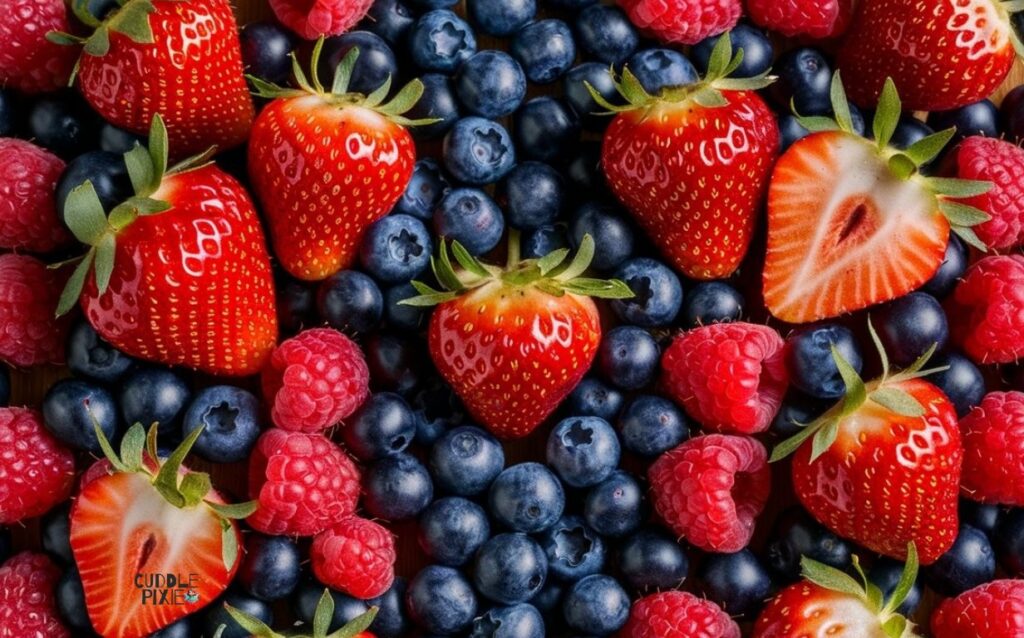
Nutritional Profile
- Rich in antioxidants, vitamin C, and fiber.
Health Benefits
- Dr. Emily Parker, a nutritionist, notes, “Berries are fantastic for boosting immunity and improving digestion. They are also known for their anti-inflammatory properties.” Consuming berries can help reduce the risk of pregnancy-related complications and promote overall health.
- Berries are also low in calories but high in water content, making them a perfect snack to keep you hydrated and satisfied.
Oranges
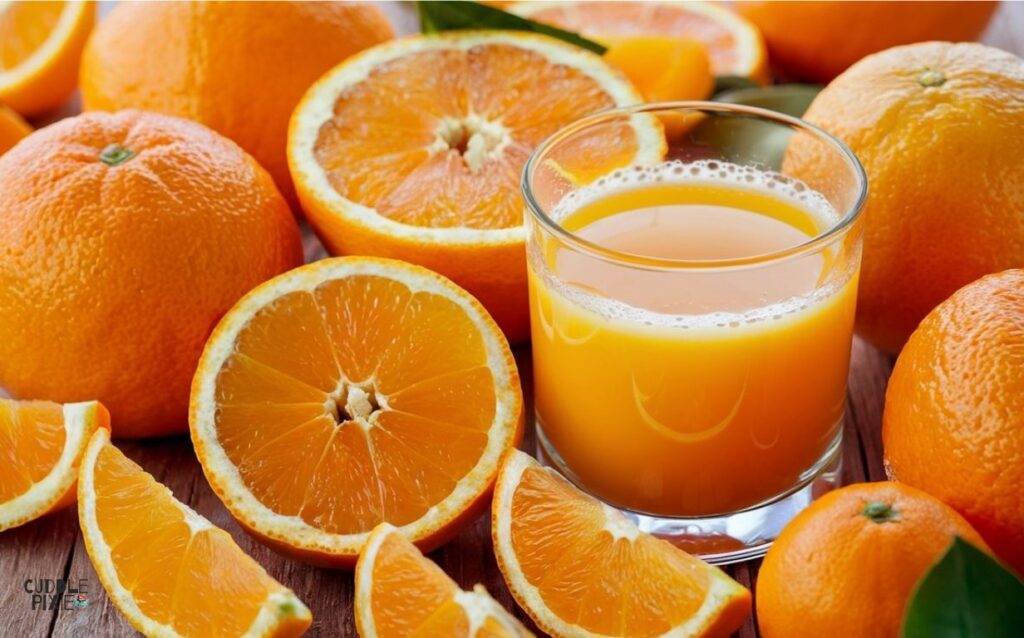
Nutritional Profile
- High in vitamin C, folate, and hydration.
Health Benefits
- Oranges are essential for enhancing immune function, supporting fetal brain development, and maintaining healthy skin. According to dietitian Jane Smith, “The vitamin C in oranges helps with the absorption of iron, which is vital during pregnancy.”
- Additionally, the natural sugars in oranges provide a quick energy boost, which can be particularly helpful during periods of fatigue.
Bananas
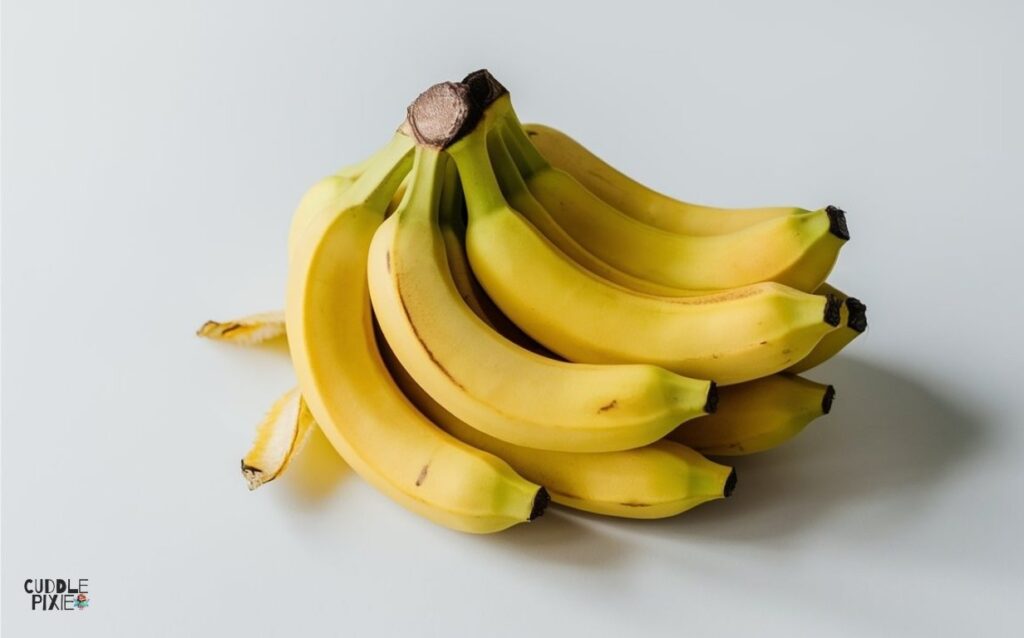
Nutritional Profile
- Packed with potassium, vitamin B6, and fiber.
Health Benefits
- Bananas can alleviate nausea, prevent muscle cramps, and regulate blood pressure. Dr. Laura Green, a gynecologist, says, “Bananas are a great snack to combat morning sickness and maintain energy levels.”
- The high potassium content in bananas helps in maintaining electrolyte balance and preventing leg cramps, a common issue during pregnancy.
Apples
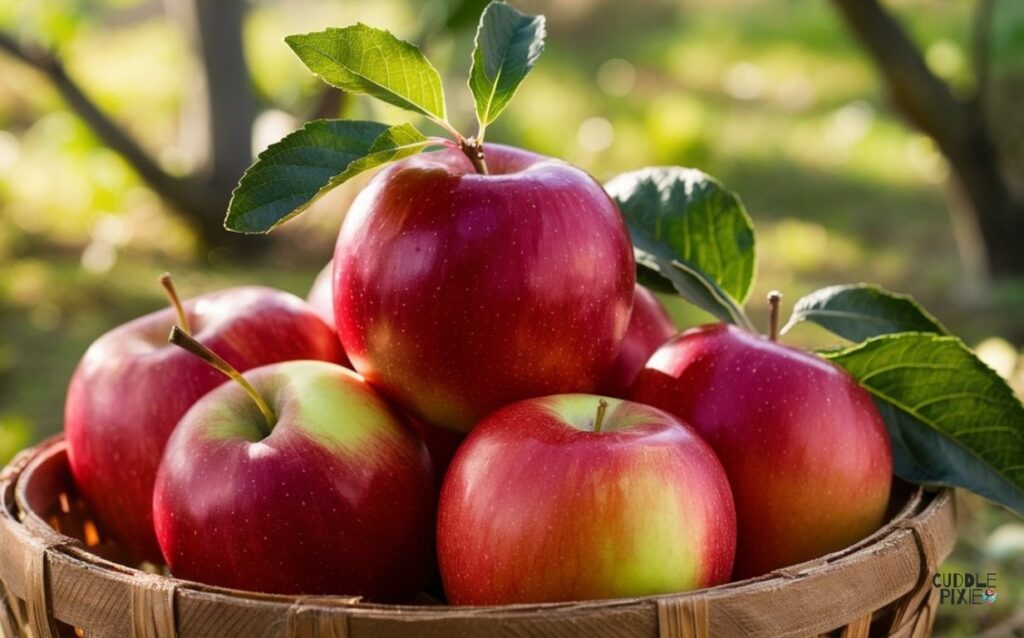
Nutritional Profile
- Contains vitamins A and C, potassium, and dietary fiber.
Health Benefits
- Apples promote heart health, aid digestion, and maintain blood sugar levels. They are also easy to carry and consume on the go.
- The fiber in apples helps in preventing constipation, and the antioxidants present in them support the immune system.
Avocados
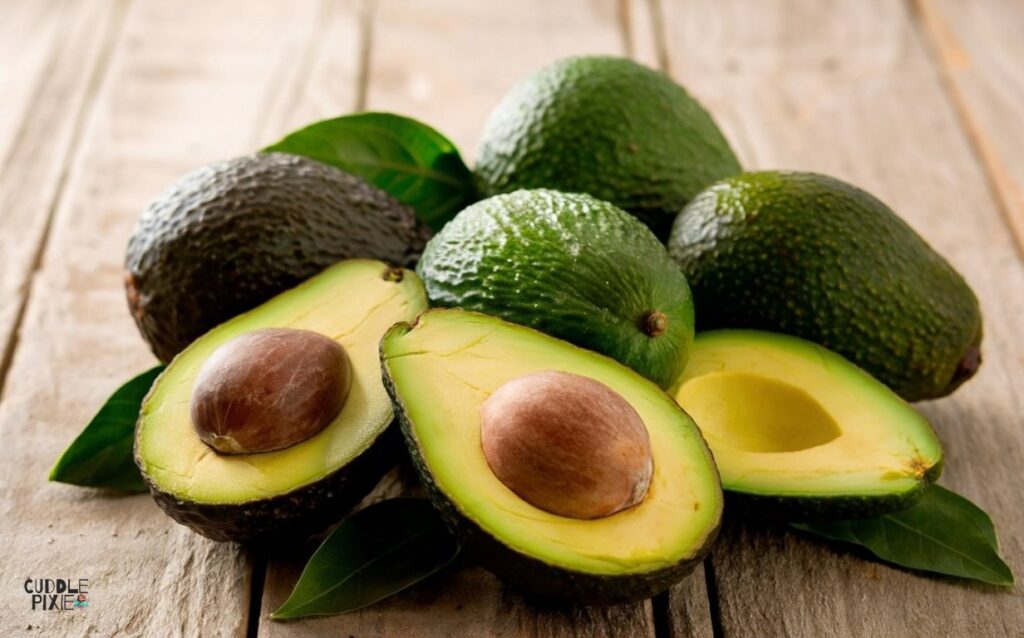
Nutritional Profile
- Rich in healthy fats, folate, vitamin K, and potassium.
Health Benefits
- Avocados support brain development, reduce the risk of birth defects, and provide long-lasting energy. Nutritionist Rachel Adams emphasizes, “The healthy fats in avocados are crucial for fetal brain development.”
- Avocados also contain a good amount of fiber, which aids in digestion and helps keep blood sugar levels stable.
Mangoes
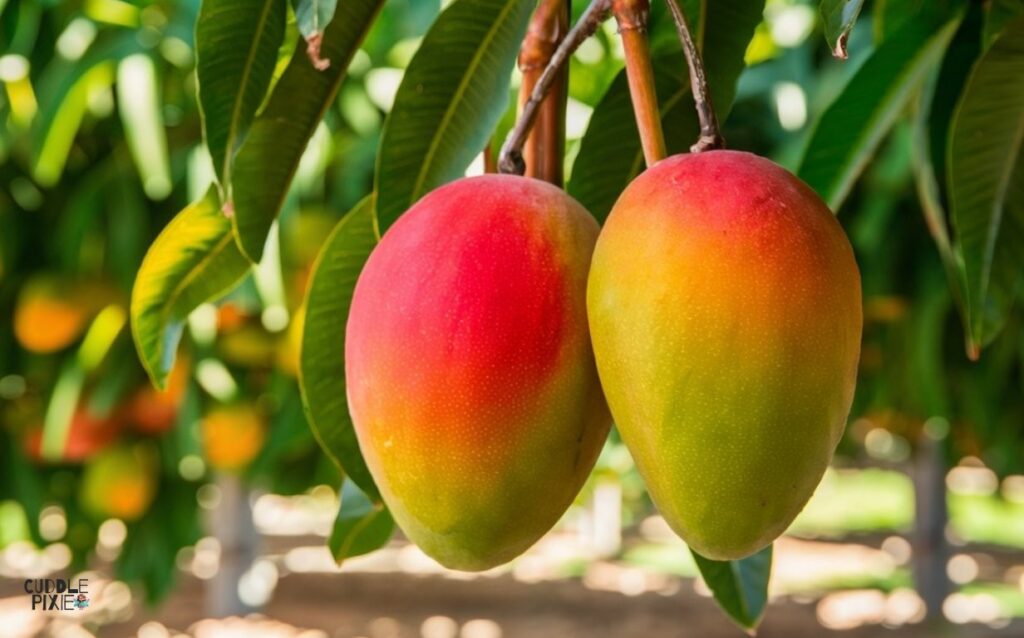
Nutritional Profile
- High in vitamins A and C, and fiber.
Health Benefits
- Mangoes boost immunity, improve digestion, and support eye health. Their natural sweetness also makes them a delightful treat.
- The vitamin A in mangoes is important for the development of the baby’s eyes, skin, and immune system.
Watermelon
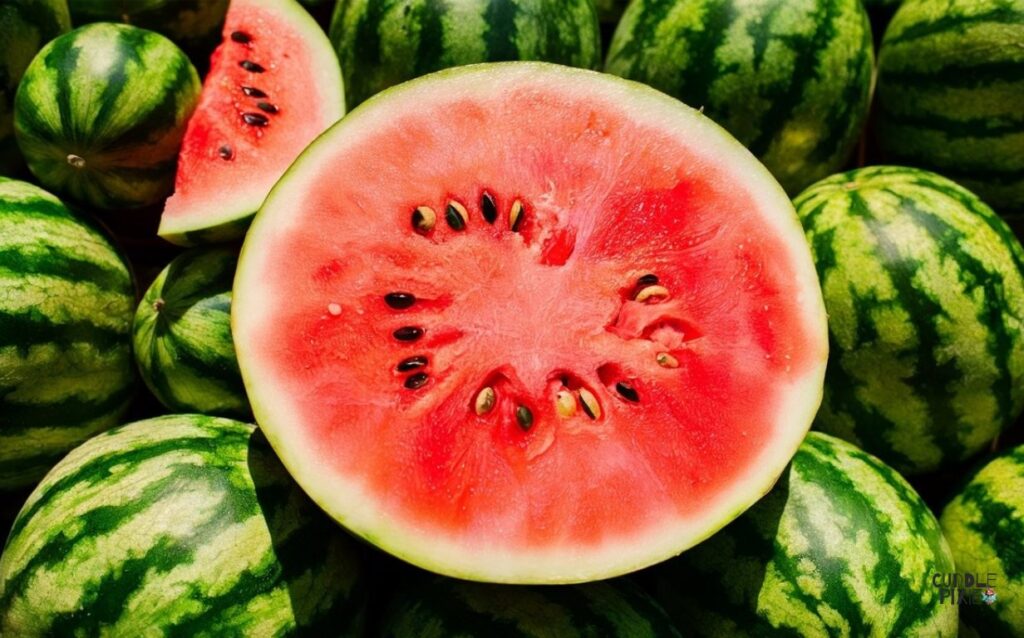
Nutritional Profile
- Contains vitamins A, C, and B6, and hydration.
Health Benefits
- Watermelon reduces swelling, eases heartburn, and alleviates morning sickness. It’s an excellent way to stay hydrated, especially during hot weather.
- The high water content helps in keeping you hydrated, and the natural sugars provide a gentle energy boost.
Incorporating Fruits into Your Pregnancy Diet
Health experts recommend consuming at least 2-4 servings of fruit per day during pregnancy. This ensures you get a variety of nutrients essential for both you and your baby.
Tips for Choosing and Preparing Fruits
Opt for fresh, organic, and seasonal fruits to maximize their nutritional benefits. Always wash fruits thoroughly to remove any pesticides or contaminants. Dr. Megan Taylor, a dietitian, advises, “Preparing a colorful fruit salad or smoothie can make it easier to consume a variety of fruits daily.”
Here are some practical tips for incorporating fruits into your diet:
- Morning Smoothie: Start your day with a smoothie made with bananas, berries, and a handful of spinach.
- Snacks: Keep apples, oranges, and bananas handy for quick snacks.
- Salads: Add slices of avocado and mango to your salads for extra flavor and nutrition.
- Desserts: Satisfy your sweet tooth with a bowl of mixed berries or a slice of watermelon.
Potential Risks and Considerations
Be mindful of any food allergies or sensitivities. If you experience any adverse reactions, consult your healthcare provider immediately.
To minimize exposure to harmful substances, choose organic fruits when possible and wash them thoroughly before consumption. The Environmental Working Group (EWG) provides a list of fruits and vegetables with the highest and lowest pesticide residues, known as the Dirty Dozen and Clean Fifteen, which can help you make safer choices.
While fruits are incredibly beneficial, they should be part of a balanced diet that includes a variety of food groups to meet all nutritional needs. Include lean proteins, whole grains, dairy, and healthy fats in your diet to ensure you are getting all the necessary nutrients.
Final Thoughts
Incorporating fruits like berries, oranges, bananas, apples, avocados, mangoes, and watermelon into your pregnancy diet can offer numerous health benefits. These fruits provide essential vitamins, minerals, and antioxidants that support both maternal and fetal health.
Prioritize these nutrient-rich fruits to support a healthy pregnancy. Dr. Lisa Harris, an obstetrician, reminds us, “A balanced diet enriched with fruits can make a significant difference in your pregnancy journey.”
Always consult with your healthcare provider for personalized dietary advice. Embrace the natural goodness of fruits to nourish both you and your growing baby.
Additional Resources
- “Pregnancy Nutrition: What to Eat and What to Avoid” by Mayo Clinic
- “Fruits During Pregnancy: The Good, the Bad, and the Unhealthy” by All About Women
References
- Johnson, S. (2023). Nutritional Needs During Pregnancy. Obstetrics Journal.
- Parker, E. (2023). The Power of Berries in Pregnancy. Nutrition Today.
- Smith, J. (2023). Vitamin C and Iron Absorption. Dietitian’s Digest.
- Green, L. (2023). Managing Morning Sickness with Bananas. Gynecology Weekly.
- Adams, R. (2023). Healthy Fats for Fetal Development. Pregnancy Nutrition.
- Taylor, M. (2023). Safe Preparation of Fruits During Pregnancy. Dietitian’s Digest.
- Harris, L. (2023). Balanced Diet for Pregnancy Health. Obstetrics Journal.
